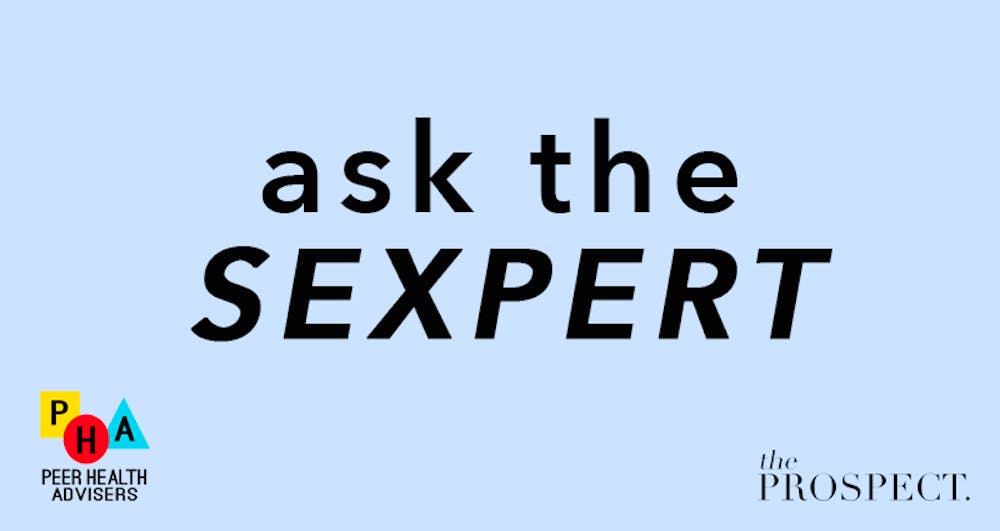Dear Sexpert,
I’ve realized that I want to pursue something casual and am not looking for a relationship right now. While I’ve had some hookups, I haven’t found a consistent situation that works for me. I know that finding something casual can be difficult, but at the end of the day, I know it is what I want. How can I approach this in a healthy manner and keep what I want in mind?
— Hookup Hopeful
Dear Hookup Hopeful,
It’s great that you’ve come to know yourself well enough to realize that a casual relationship is truly what is best at the moment. Being aware of your own wants and needs is one of the fundamental steps in seeking out experiences that both feel good and are good for you.
When engaging in casual sex or intimacy, communication becomes all the more crucial in finding a partner (or partners) and maintaining a healthy, respectful relationship. Before you do anything physical, have an open and honest conversation about expectations, boundaries, and comfort levels. Make sure you and your partner(s) are on the same page about what a casual relationship means, whether it is a one-time thing or an ongoing arrangement.
Not everyone will share the same definition of “casual,” and different expectations can lead to confusion or hurt feelings. Being honest about your desires and listening to what the other person wants creates a zone for mutual understanding and respect. It’s perfectly okay if this conversation is uncomfortable to have, as discussing sex and boundaries in open terms is a skill we aren’t often taught, and thus, is one that we need to learn.
When engaging in casual sex, taking care of your sexual health is also important. Getting regular sexually transmitted infection (STI) tests is also a responsible self-care measure you can take to protect yourself and your partner(s), even if there are no current reasons for concern. Many STIs, including chlamydia and gonorrhea, may be asymptomatic but can have permanent health effects if left untreated. Other STIs, including syphilis and herpes, are also common and can be transmitted through oral sex or skin-to-skin contact.
Preventing HIV is also a priority, and having protection and researching preventative options like PrEP can prevent transmission. Remember that protection doesn’t just mean external and internal condoms — dental dams and other barrier methods also reduce risks from oral sex. University Health Services offers STI testing as well as regular exams to support your sexual and reproductive healthcare needs.
Remember that risks will depend on the kind of sexual activity you and your partners are engaging in (and not just with each other). Having a conversation with your partner about whether either of you are having sex with other people, and using barrier methods or other forms of prevention, is another important discussion to promote health and safety. Taking responsibility for your health not only makes you healthy, but it’s also respectful and caring of your partners’ health.
Another aspect to keep in mind is how these casual hookups are initiated. Not always, but often “hookups” commonly occur in the setting of eating clubs, pre-games, and parties in which substances (such as alcohol or other drugs) are present. These substances can impair decision-making, impact attention to interpersonal cues, and challenge clear consent. You should check in with yourself and your partner(s) to ensure that you and they are able to consent. If you ever are unsure if someone is in the right state of mind to give consent, or if you are being pressured and feel uncomfortable, it’s always better to back out of the situation. Hookup culture can be exciting, but physical and emotional safety always comes first.
Lastly, remember that feelings change with time, and that is completely normal. What feels right for you now might evolve as you continue to explore your likes and reflect upon experiences. You could start out wanting something casual and find that you require something deeper, or you might feel more certain that a casual relationship is ultimately what you want.

Your partners have similar autonomy to change their feelings, so open discussion is required to navigate through changes. Check in with yourself regularly and have honest conversations with your partner(s) if something starts to feel different. If the relationship is no longer what you want, or if your partner shows a change in feelings, being respectful and direct about it will make it easier for both of you. Casual sex, as with any other form of intimacy, is a two-way street and should be comfortable for everyone involved.
Casual sex can be a positive and enjoyable experience when approached with honesty, awareness, and sensitivity. By making clear communication your priority, practicing safe sex, being mindful of hookup culture dynamics, and being open to change, you can create experiences that fit what you desire. Whatever path you take, make sure it’s one that centers your well-being and is respectful of those you engage with.
You got this!
The Sexpert
The Sexpert is a monthly column written in collaboration between The Prospect and the Peer Health Advisers (PHA) program. For more information, you can visit the Sexpert’s website. If you are interested in submitting a question, you can send it through this form: tinyurl.com/princetonsexpert.








